by Daniel Hathaway
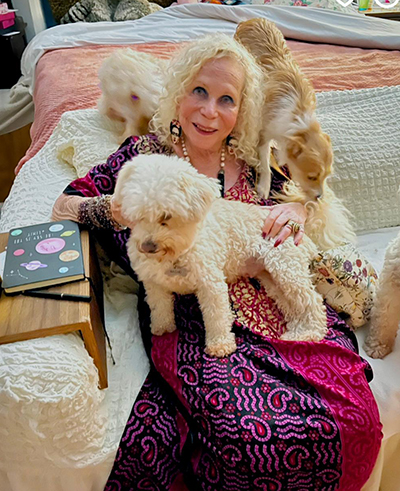
Daniel Hathaway: Are you enjoying your visit to Wooster?
Yvonne Kálmán: Very much. I love it here. I’ve been here many times. They’ve done 14 of my father’s operettas. I haven’t been to all, but I’ve been to several, and I’ve enjoyed it very much. I’ve made some wonderful friends here and love coming back.
DH: OLO’s a great company, isn’t it?
YK: It’s the best. The works are performed with complete devotion, and they bring out the best of the author’s intentions.
DH: And I think they’ve done more of your father’s operettas than those of any other composer.
YK: Well, I’m very happy about that, but we’re not over yet. They have three more to do, and then I want them to start back at number one.
DH: Wonderful. Tell me what you thought of the production of Arizona Lady.
YK: I thought it was fabulous. It was the first time that I’d seen it with all the music, and it was very well done. I’m equally impressed with the caliber of the artists that they’re attracting. In previous years, they had some wonderful voices, maybe on the wrong body types, but now everything fits. It’s just a wonderful, wonderful group of artists with marvelous talent.
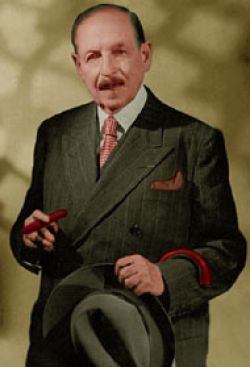
YK: Where I grew up in California we had two movie theaters within walking distance. One was a Lowe’s and one was an RKO in the other direction. My father would go to the movies and he fell in love with the basic American philosophy that right is right, and right always wins. And he loved John Wayne. He had the pleasure of meeting him and he just couldn’t get over it.
That’s how he came to write a Western musical. But, of course, to make it Kálmán, it had to be a little bit Hungarian, so you have a lot of nostalgic Hungarian melodies as well as some very American ones.
DH: And did he manage to work in a waltz and a csárdás?
YK: Oh, yes.
DH: There was about a nine-year gap between the next to last Operetta he wrote and this one, which was left unfinished.
YK: He had a severe heart attack six years before he died, which left him very debilitated. And then three years after that, he had a stroke, which paralyzed him. He had a full time nurse. But he had a little Bösendorfer piano in his bedroom that he played. It was kind of sad at the end. He loved good food and we had this incredible Hungarian chef who’d been with us 50 years and he couldn’t eat her food except on his birthdays. So that’s why there was a gap. But he was always working. He was very prolific.
DH: I believe that your brother finished Arizona Lady.
YK: Don’t ask me exactly what he did, but sometimes I hear a little bit of my brother’s more American way of dealing with some of the notes. But most everything is by my father.
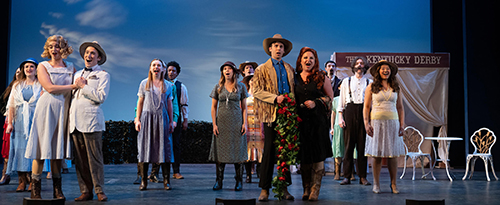
YK: Yes. I thought the Arizona Opera version was excellent. It was performed in two cities in the state and they went crazy about it because it’s so much an advertisement for Arizona. There is a song in there called Arizona and there was a movement to make it the State song. They loved it, and I was very proud to be there. They were excellent artists and took it very seriously. That makes me so happy because of the snobbism that a lot of opera goers have toward operetta.
DH: What would you tell a potential audience member about why they shouldn’t miss seeing the final performance of the show this Thursday?
YK: I think people should see Arizona Lady because it combines the innocence and the beauty of what the United States used to be like. The show is very romantic. It’s very much fun, with marvelous dancing, and a soubrette who can stand on her head and sing. She’s beautiful and there’s a fantastic tenor and a very good supporting cast. It’s a wonderful way to spend a couple of hours in fantasy.
DH: I don’t believe that your father started out to be an operetta composer.
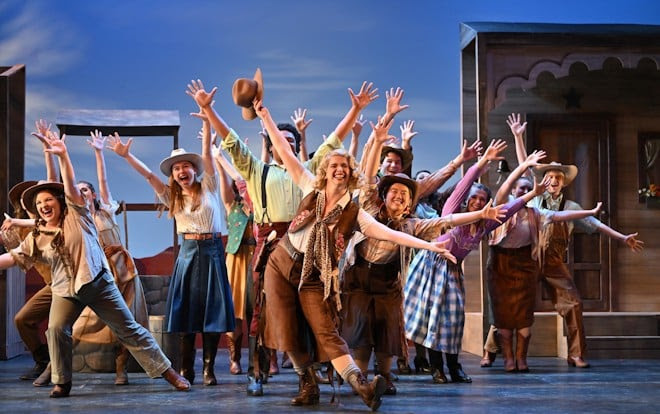
When he came to the United States, he didn’t speak English. He was so grateful that he had the opportunity to save his life and his family, but at the same time it was a very difficult adjustment. Everyone knew him in Vienna and Budapest and those were the places that he liked to be the most.
Louis V. Mayer had made lots of promises to my father that he would be a famous Hollywood composer, but none of them held. And his problem with the language, the problem with his age, and the problem of having a beautiful wife 30 years younger in a country where she was immediately catered to and he was almost left in the corner — it was a terrible adjustment.
So in the California days, my father was miserable. In Vienna, he was used to going to the Sacher Café in the afternoon and meeting his fellow composers and sitting around and smoking cigars and being inspired — all the things that you do in a cultured city in Europe. We were in Beverly Hills, where everything was done in cars or in homes behind gates and you didn’t really go anywhere. He was a terrible misfit, and so he had to find his way. When we moved to New York he felt happier because there were other emigrants from Vienna and Hungary that he could relate to. Our house was always open, and my mother was really famous for her parties. They were written up by Dorothy Kilgallen and what happened the night before was talked about on the radio in the morning.
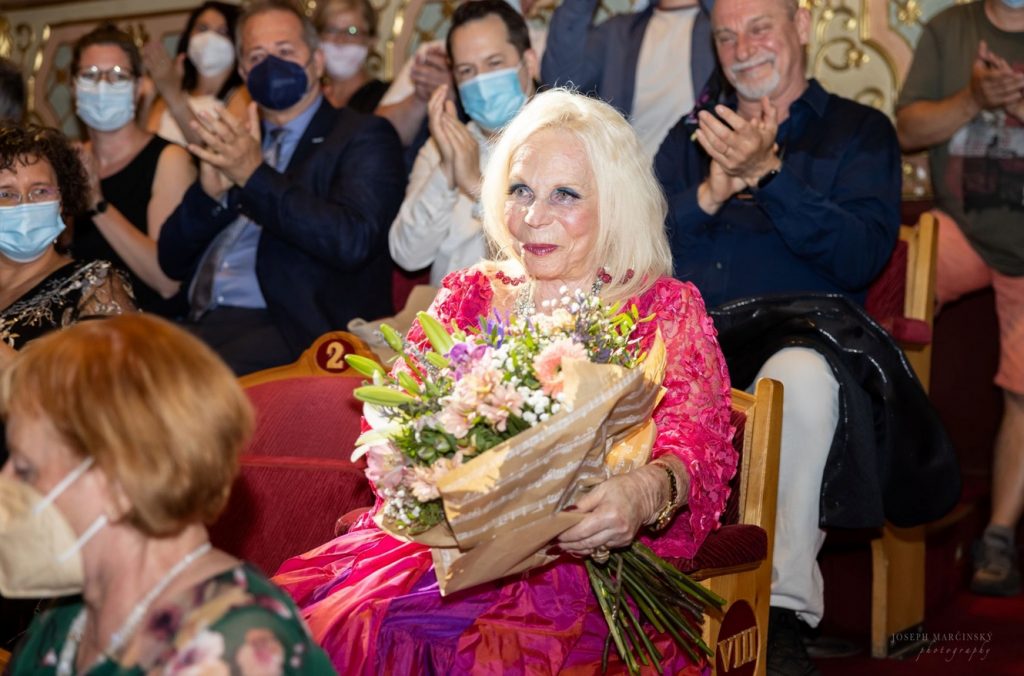
YK: I had one a year ago that was even better. That party was in two cities. They did a gala concert in the Opera Theater in Budapest which was a beautiful tribute to my father — and a little bit to me. I sat in the center loge and they had twelve of the most attractive male singers on stage, all with long stem roses that they delivered to me while they were singing. Then the theater director came with a huge bouquet from the prime minister and his wife and sang to me. I had tears coming down my eyes. I was embarrassed as hell. And then I thanked him and he said, now you have to get up. So I stood up and all of a sudden there was gold confetti coming down from the ceiling. It was once in a lifetime. I’ll never forget it.
We went to marvelous places and took a tour on the Danube. Then on the Sunday following the Saturday night concert we took a bus to Slovakia to a city that used to belong to Hungary and has a beautiful opera house where they had revived The Duchess of Chicago in the most wonderful production.
But before that, we visited an opera house whose head is a hobby chef who cooked the most wonderful dinner for all our guests. They presented me with 85 long stem roses, and then we sat down to dinner with wonderful wines and drinks and live music, of course. Then the next day we were invited to a castle that normally is not open to the public but we had a party there with marvelous food. That night we went to a wonderful production of The Duchess of Chicago. So that was my most recent party. They are planning to open a museum dedicated to my father, or at least a wing dedicated to my father’s music and his history. But right now, with the war next door, everything has been put on hold.
I’m very grateful that my father has not been forgotten and that new generations are loving his music as well and that they’re discovering works like The Violet of Montmartre that my father wrote in the early 30s that has just been performed 50 times or more.
DH: Now tell me more about you!
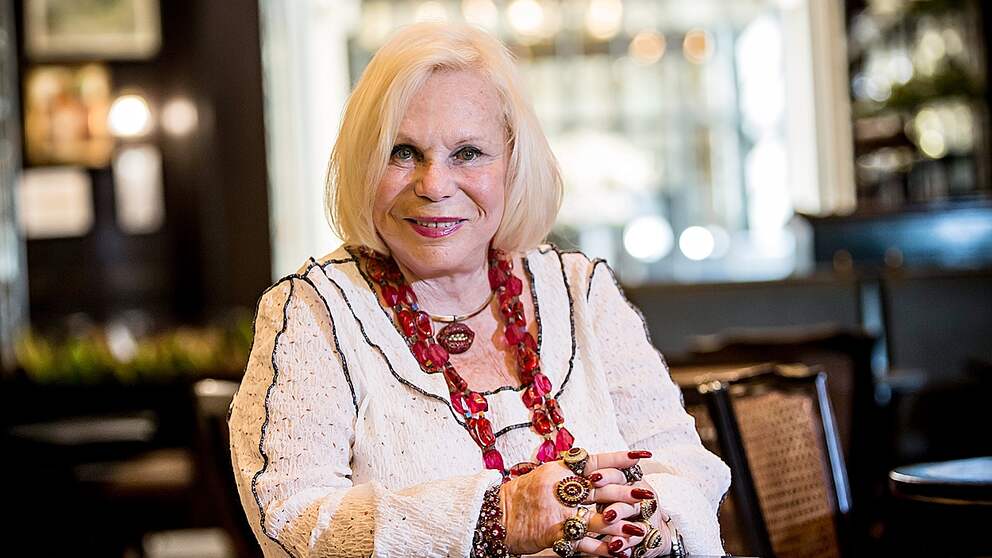
That enticed me to do more. I got in touch with different theaters in the United States, and one of them was Ohio Light Opera. Finally I got a call from the Santa Fe Festival, who wanted to open their season with Countess Maritza. They did, and it was such a big success that they repeated it as the opening night production four years later.
Then it played in Los Angeles, and I brought certain works to Moscow. The first time that my father’s music — or any light music — was ever performed in the Bolshoi was because I bothered them so much that they were tired of saying no. When they put the tickets out for sale, they sold out within 24 hours. I felt that I had accomplished a lot, and my father would be very proud, and I had earned my keep, as it were. 
My father was very prolific with the stock market because you could sell moment to moment, and he and my mother always lived in rented or furnished homes because all our things were stolen. They didn’t want to start from scratch, so she never wanted me to own anything either. But when she saw the view and the atmosphere in Puerto Vallarta, she said, ’don’t ever sell.’
So I took the ’For Sale’ sign off and I waited. When my husband retired from Lufthansa, we went to live in my home in Malibu, but the winters were a bit too cold for him, so we started renting beautiful homes in Puerto Vallarta. But I would always go to my lot and look at the view and think, what a shame that we can’t do anything here. Then somebody offered me a condo that had been given to Elizabeth Taylor. She never used it, but it still had that Taylor mystique. It was above a fish restaurant and there was a part of the apartment that was unusable because all the odors of the fried fish would come into it. So I had an architect come over to see whether it was salvageable.
Well, four architects, a lawsuit, and seven years later, we had a house with four bedrooms and a view — a nice home that we could spend the winters in. Then I went to a party and met a woman who said ’I rent out short term villas and if you’re interested, between the view and the location I can keep your house rented. I think I could make you and your husband very happy.’ My husband’s exact words were ’Throw her out and lock the door — I didn’t marry an innkeeper.’
So I said, Helmut, we have a place in Germany, we have Malibu, and we have a place in the country outside of Los Angeles. Why don’t we just try it for a little bit, see if you like it. Well, he enjoyed it. He thought it was fun. To make a long story short, we went from 9 to 14 bedrooms, and Casa Yvonneka is the most popular rental villa in town. And I am so proud of it. We get the award every year on TripAdvisor for being among the best 1% in the world. 
We were able to do so much for the dog population. It’s kind of a halfway house. We’re having problems at the moment because in the United States, nobody’s adopting. We used to be able to send wonderful people dogs monthly and get more dogs. But right now we’re at a standstill. But the ones that we have are very lucky. The shelter is about 20 minutes away in a beautiful green area, and it’s a little bit cooler there. They can bark and have a good time. They have a little doggy swimming pool, they get exercised every day, and they get good food and lots of love. And that is my passion.
DH: Yvonne, thank you so much for talking. I’m going to sign off here and wish you a very happy stay and a safe trip back home.
YK: Thank you so much. I’ve enjoyed it very much too. And I told you, once I start talking, it’s hard to shut me up.
Ohio Light Opera will give the final performance of Emmerich Kálmán’s Arizona Lady, conducted by Wilson Southerland and directed by Jacob Allen, with original German libretto by Alfred Grünwald and Gustav Beer translated by Steven A. Daigle, in Freedlander Theatre at the College of Wooster on Thursday, July 27 at 7:30 pm. Tickets are available online.
Published on ClevelandClassical.com July 25, 2023
Click here for a printable copy of this article



